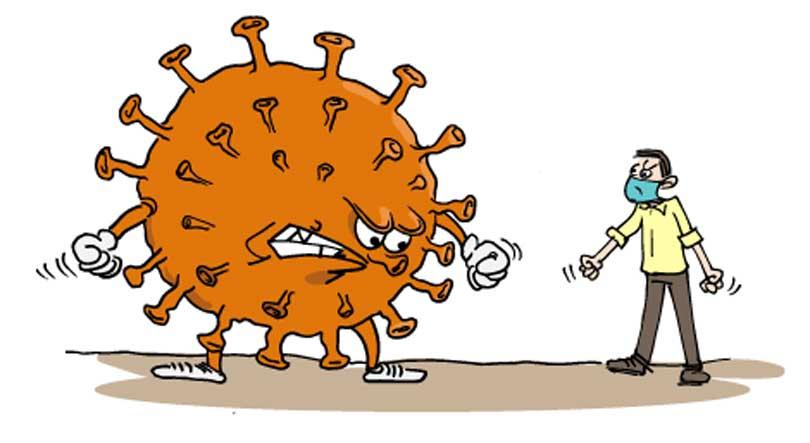Reply To:
Name - Reply Comment

The COVID-19 pandemic is taking a heavy toll on every important sector in Sri Lanka, as it does in many other countries. The country’s economy is in bad shape with the major revenue earners such as the apparel industry, foreign employment and tourism have been hit hard. The tourism industry which had seen a steep rise after the end of the separatist war with the overseas tourist arrivals surging from 400,000 in 2009 to around two million in 2019 has collapsed totally. Now the country has compelled to welcome tourists from Ukraine, a poor country in Europe which is waging a struggle to contain COVID-19 spread.
Schools have been closed for about ten months since March last year, except for a few months before the outbreak of second wave of COVID-19 last October. Now the government has decided to reopen them, despite the danger of a school cluster by the pandemic, since the end or a respite of the threat is not in sight, until which time schools obviously cannot be closed.
Health officials said last week that there was a slight slump in the spread of the virus in the country, claiming that the daily reported cases have dropped from around 700 to around 500. However, the Government Medical Officers’ Association (GMOA) said that there was a drastic drop in number of PCR tests. Editor of the GMOA, Dr. Harith Aluthge said the number of tests conducted daily had dropped from 17,000 to 10,000.
On the other hand, unlike the situation during the first wave, a slackened interest or a hesitation in tests is evident among the people. Also, the authorities seem attempting to take advantage of this hesitation or fear, though with good intentions, which might prove counterproductive. For instance, police recently announced that those who do not wear face masks in public places, would be subject to PCR tests, giving the impression that those tests serve as a punishment.
Another incident with the same effect took place in May last year, when the Tamil politicians held commemoration events for those Tamils who were killed during the war, especially in Mullivaikkal. The Police warned them if they proceed with the events, ignoring their orders, they would be subjected to isolation. In fact, they obtained a court order as well to this effect and the Tamil National People’s Front (TNPF) leader Gajendrakumar Ponnambalam and two others were ordered to be self-quarantined. However, after a motion submitted by the lawyers of Mr. Ponnambalam, the judge on the next day ordered the police to submit medical report on the condition of the said politicians, saying that isolation of a person without being infected is a violation of the particular person’s rights.
Health measures such as placing people under quarantine or conducting PCR or Rapid Antigen Tests (RAT) should not be deemed as punishments which would prompt people from rejecting them or being hesitant to undergo. Naturally, people do not like to be identified as Coronavirus patients or as close contacts of such patients, not necessarily for fear of death, but for the fear of hassles they have to endure in case of such an identification. However, these measures are obviously sine qua non, in order to prevent the spread of the pandemic. Hence, it is also obvious that instilling fear about health measures, despite the nastiness of them, is counterproductive.
The officials and the workers of the health sector as well as personnel of the police and the armed forces are doing a yeomen service in containing the virus threat in the country, even risking their own lives. A group of about 100 Criminal Investigation Department (CID) officers who were tasked with investigating the outbreak of COVID-19 at Brandix apparel factory in Minuwangoda, had been infected with the deadly virus last month. In the previous month it was reported that over 600 police personnel who were involved in containing COVID-19 had been infected while another 3000 were sent to quarantine centres.
Earlier, during the first wave of the pandemic in the country, a COVID-19 cluster had formed involving around one thousand navy personnel and it was later revealed that the cluster had originated from those personnel who had involved in contact tracing in the
Ja-ela area. It was also said that the sailors had even to climb on trees there to apprehend some of the undisciplined youth before they were taken to quarantine centres.
In light of these sacrifices by the health workers and the personnel of the police and the armed forces, people have to be encouraged, and not discouraged to cooperate in health measures, such as undergoing tests and isolation, where they are necessary.